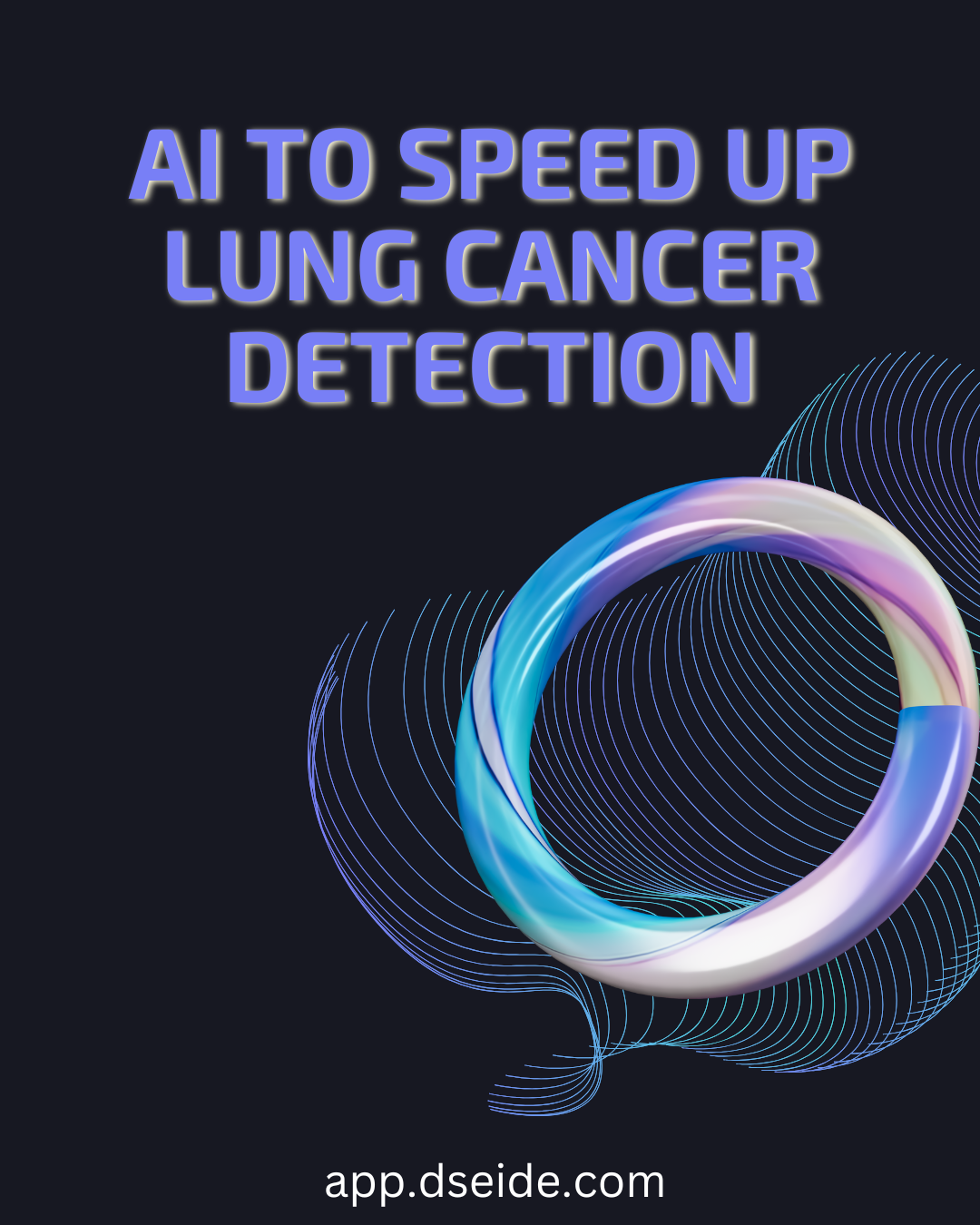Lung cancer remains one of the leading causes of cancer-related deaths worldwide, primarily due to late diagnosis. However, artificial intelligence (AI) is revolutionizing lung cancer detection by enabling faster, more accurate, and early identification of malignant nodules in lung scans.
AI-powered systems use deep learning and machine learning algorithms to analyze medical imaging, such as computed tomography (CT) scans, with remarkable precision. These AI models are trained on vast datasets, allowing them to detect abnormalities that might be missed by human radiologists. Studies have shown that AI-assisted diagnosis can improve detection rates, reduce false positives, and minimize the workload on healthcare professionals.
One of the biggest advantages of AI in lung cancer detection is its ability to recognize patterns in imaging data much faster than traditional methods. AI can differentiate between benign and malignant nodules, helping doctors make more informed decisions. Additionally, AI can assist in risk assessment, predicting the likelihood of cancer progression based on a patient’s medical history and imaging results.
Moreover, AI integration with cloud-based platforms allows real-time analysis and collaboration among specialists worldwide, ensuring faster diagnosis and treatment planning. AI-driven lung cancer detection tools also help in screening high-risk populations, such as smokers and individuals with a family history of lung cancer, improving early detection rates and survival outcomes.
Despite these advancements, AI is not meant to replace radiologists but rather to enhance their efficiency and accuracy. As AI technology continues to evolve, it holds great promise for transforming lung cancer diagnosis, reducing mortality rates, and ultimately saving lives. By integrating AI into healthcare, we move one step closer to a future where lung cancer can be detected at its earliest stages, leading to timely and effective treatment.
Source: The financial express
#LungCancer #AIinHealthcare #EarlyDetection #CancerDiagnosis #MedicalAI #LungCancerAwareness #ArtificialIntelligence #HealthTech #AIforGood #Radiology #CancerResearch #CTScan #HealthcareInnovation #PrecisionMedicine #SaveLives #dseidehealthcarenetwork
AI-powered systems use deep learning and machine learning algorithms to analyze medical imaging, such as computed tomography (CT) scans, with remarkable precision. These AI models are trained on vast datasets, allowing them to detect abnormalities that might be missed by human radiologists. Studies have shown that AI-assisted diagnosis can improve detection rates, reduce false positives, and minimize the workload on healthcare professionals.
One of the biggest advantages of AI in lung cancer detection is its ability to recognize patterns in imaging data much faster than traditional methods. AI can differentiate between benign and malignant nodules, helping doctors make more informed decisions. Additionally, AI can assist in risk assessment, predicting the likelihood of cancer progression based on a patient’s medical history and imaging results.
Moreover, AI integration with cloud-based platforms allows real-time analysis and collaboration among specialists worldwide, ensuring faster diagnosis and treatment planning. AI-driven lung cancer detection tools also help in screening high-risk populations, such as smokers and individuals with a family history of lung cancer, improving early detection rates and survival outcomes.
Despite these advancements, AI is not meant to replace radiologists but rather to enhance their efficiency and accuracy. As AI technology continues to evolve, it holds great promise for transforming lung cancer diagnosis, reducing mortality rates, and ultimately saving lives. By integrating AI into healthcare, we move one step closer to a future where lung cancer can be detected at its earliest stages, leading to timely and effective treatment.
Source: The financial express
#LungCancer #AIinHealthcare #EarlyDetection #CancerDiagnosis #MedicalAI #LungCancerAwareness #ArtificialIntelligence #HealthTech #AIforGood #Radiology #CancerResearch #CTScan #HealthcareInnovation #PrecisionMedicine #SaveLives #dseidehealthcarenetwork
Lung cancer remains one of the leading causes of cancer-related deaths worldwide, primarily due to late diagnosis. However, artificial intelligence (AI) is revolutionizing lung cancer detection by enabling faster, more accurate, and early identification of malignant nodules in lung scans.
AI-powered systems use deep learning and machine learning algorithms to analyze medical imaging, such as computed tomography (CT) scans, with remarkable precision. These AI models are trained on vast datasets, allowing them to detect abnormalities that might be missed by human radiologists. Studies have shown that AI-assisted diagnosis can improve detection rates, reduce false positives, and minimize the workload on healthcare professionals.
One of the biggest advantages of AI in lung cancer detection is its ability to recognize patterns in imaging data much faster than traditional methods. AI can differentiate between benign and malignant nodules, helping doctors make more informed decisions. Additionally, AI can assist in risk assessment, predicting the likelihood of cancer progression based on a patient’s medical history and imaging results.
Moreover, AI integration with cloud-based platforms allows real-time analysis and collaboration among specialists worldwide, ensuring faster diagnosis and treatment planning. AI-driven lung cancer detection tools also help in screening high-risk populations, such as smokers and individuals with a family history of lung cancer, improving early detection rates and survival outcomes.
Despite these advancements, AI is not meant to replace radiologists but rather to enhance their efficiency and accuracy. As AI technology continues to evolve, it holds great promise for transforming lung cancer diagnosis, reducing mortality rates, and ultimately saving lives. By integrating AI into healthcare, we move one step closer to a future where lung cancer can be detected at its earliest stages, leading to timely and effective treatment.
Source: The financial express
#LungCancer #AIinHealthcare #EarlyDetection #CancerDiagnosis #MedicalAI #LungCancerAwareness #ArtificialIntelligence #HealthTech #AIforGood #Radiology #CancerResearch #CTScan #HealthcareInnovation #PrecisionMedicine #SaveLives #dseidehealthcarenetwork





